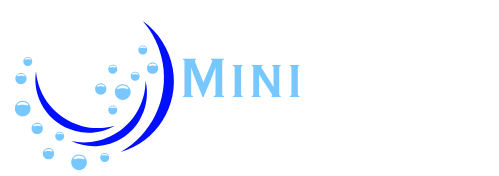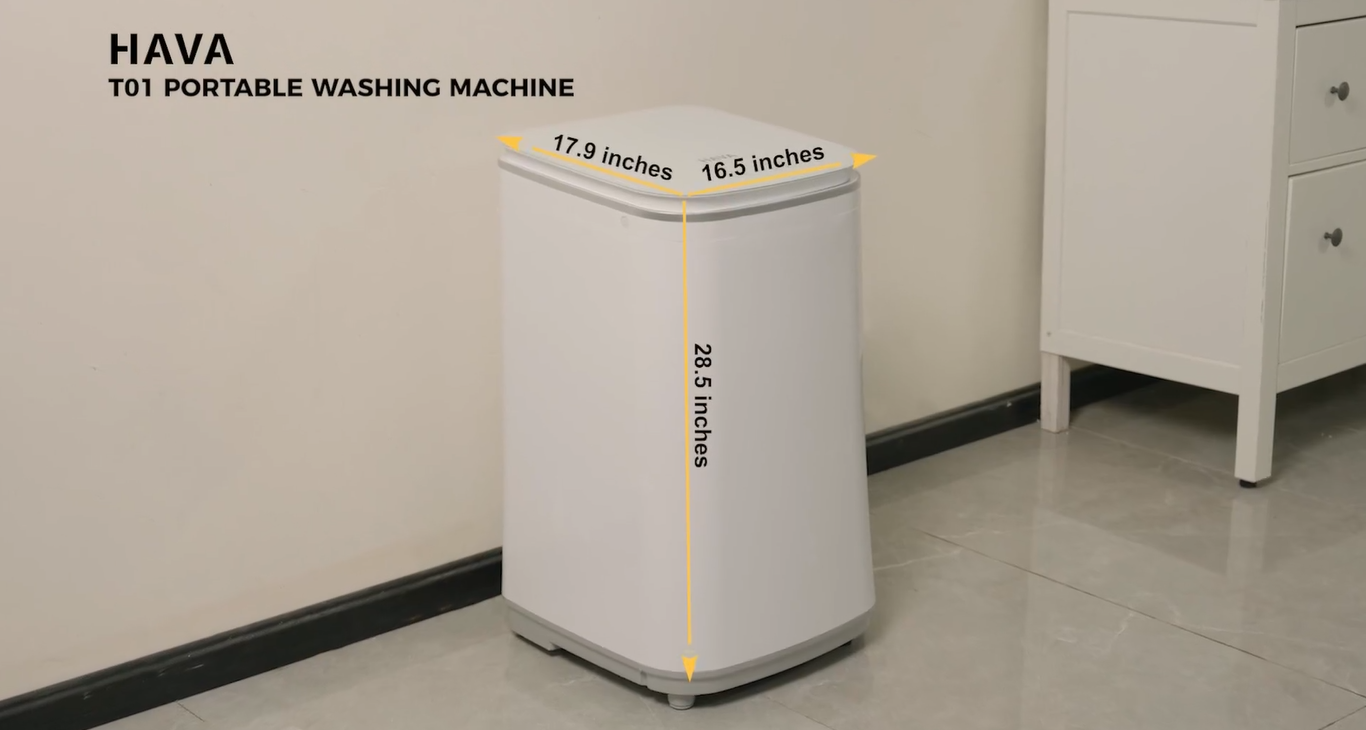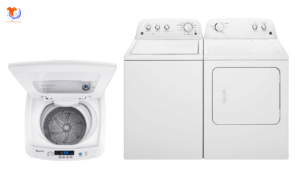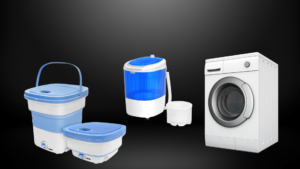Doing laundry in a limited space can be a hassle, but a small washing machine offers a convenient solution! Before making a purchase, it’s essential to consider a few key factors. In this article, we’ll walk you through 11 important facts about portable washers to help you choose the perfect fit.
What is a Small Washing Machine?
A small washing machine is a compact, portable appliance designed for washing small loads of laundry. Typically measuring under 24 inches wide, these washers are ideal for apartments, dorms, RVs, and other tight spaces.
Commonly known as hand clothes washers or countertop small washing machines, they use less water and electricity compared to standard washers. Despite their compact size, they provide efficiency, convenience, and adaptability for everyday laundry needs.
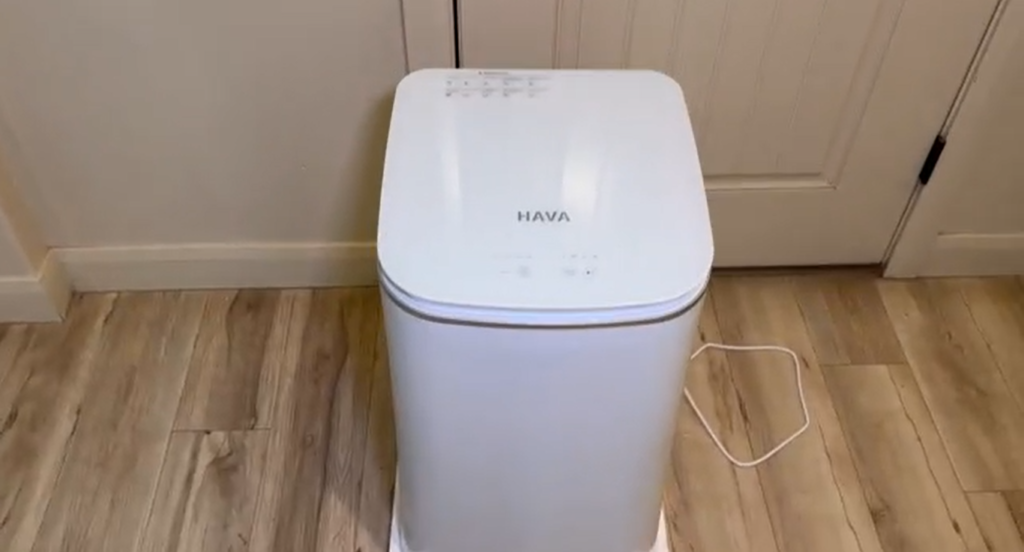
Types of Small Washing Machines – Which One is Right for You?
Manual Mini Washing Machine
- Pros: Affordable, compact, uses less water and electricity.
- Cons: Requires manual effort, not ideal for heavy fabrics, less efficient for large loads.
Automatic Small Portable Washing Machine
- Pros: Fully automated, gentle on fabrics, handles different materials well.
- Cons: More expensive, larger size, higher water and electricity consumption.
Semi-Automatic Small Portable Washing Machine
- Pros: Easy to use, efficient washing, gentle on clothes.
- Cons: Requires manual spinning, takes up more space, moderate spin efficiency.
Choosing the Best Small Washing Machine
The right Mini Laundry Unit depends on factors such as your budget, portability requirements, power availability, preferred automation level, and the need for performance similar to larger machines.
Do Small Washing Machines Work?
Yes, small portable machines are effective at cleaning clothes despite their compact size. They use rotating and agitating motions powered by electric motors to ensure thorough cleaning. This process allows water and detergent to penetrate fabrics, remove stains, and rinse away residue efficiently.
Most models feature durable components like stainless steel tubs that resist corrosion and handle regular use. With load capacities ranging from a few pounds to over 10 pounds in some automatic models, small washers help conserve water and electricity while delivering reliable performance.
Where Can You Use a Small Washing Machine?
The compact and portable nature of small machines makes them suitable for various locations, including:
- Apartments and Condos: Ideal for in-unit laundry without requiring renovations.
- Dormitories: Perfect for students with limited space.
- RVs and Camping: Lightweight design allows easy transport for off-grid laundry.
- Bathrooms and Small Spaces: Fits conveniently in tight areas where traditional machines won’t work.
- Vacation Homes and Rentals: A great solution for temporary or occasional use.
Their easy portability makes them an excellent choice for anyone needing a convenient and space-saving laundry solution.
What to Consider When Buying a Small Washing Machine?
When choosing the this thing, several key factors should guide your decision:
- Size and Capacity: Ensure it fits your available space and meets your laundry needs.
- Machine Type: Decide between manual, automatic, or semi-automatic models based on convenience and lifestyle.
- Energy Efficiency: Opt for energy-saving models to reduce electricity costs and environmental impact.
- Ease of Use: Look for user-friendly controls and minimal maintenance requirements.
- Performance: Ensure it effectively cleans various fabric types and handles different load sizes.
- Spin Speed and Noise Levels: Adjustable spin speeds improve drying, while lower noise levels are ideal for living spaces.
- Budget and Brand Reputation: Compare features and prices, and check user reviews for long-term satisfaction.
- Water Consumption & Extra Features: Consider additional options such as delay start, quick wash, or smart technology for added convenience.
By evaluating these factors, you can find a compact clothes cleaner that perfectly suits your needs and lifestyle.
What Can You Wash in a Small Washing Machine?
This thing is suitable for a variety of items, including:
- Clothing: Everyday wear, delicate fabrics, and baby clothes.
- Bedding: Lightweight sheets, pillowcases, and small blankets.
- Household Items: Towels, dishcloths, and reusable shopping bags.
Automatic models can handle different fabric types efficiently, while manual models are great for delicate items needing gentle washing. Small washers are ideal for light loads, offering an eco-friendly solution that conserves both water and energy.
Do Small Washing Machines Consume a Lot of Electricity and Water?
This mini machines are designed to be energy-efficient and water-saving. Their compact design results in lower power consumption and minimal water usage compared to larger machines. This makes them an eco-friendly option without compromising on cleaning performance.
With shorter wash cycles and smaller load capacities, small automatic washers efficiently clean clothes while using fewer resources, making them a practical choice for everyday laundry needs.
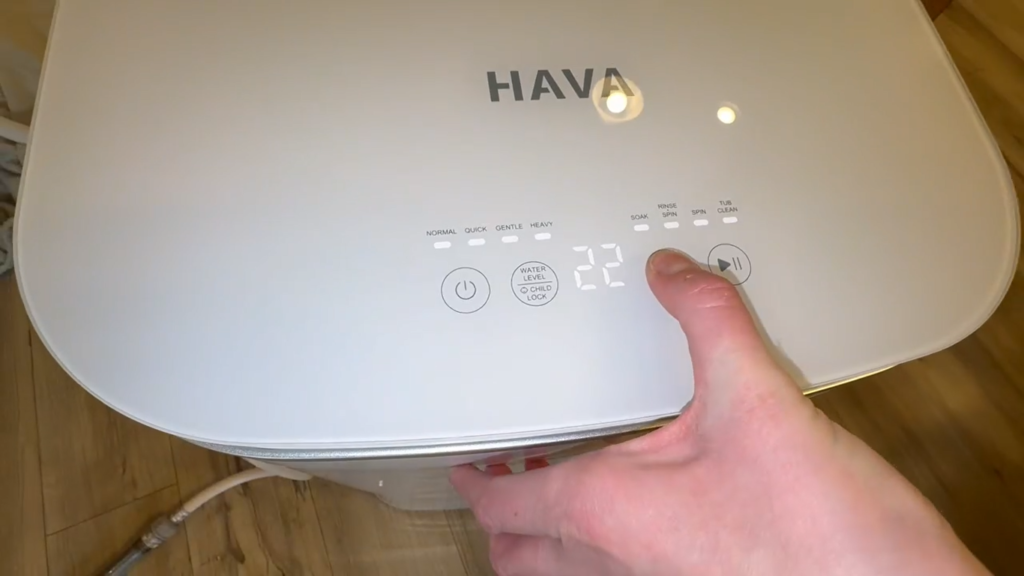
How to Use a Small Washing Machine?
Using a small clothes cleaner machine is simple and convenient. Follow these steps for optimal results:
- Sort Laundry: Separate clothes by color and fabric type.
- Load the Appliance: Add clothes without overloading to ensure effective cleaning.
- Add Detergent: Use the recommended amount to avoid residue buildup.
- Select Wash Settings: Choose the appropriate cycle and water temperature.
- Monitor the Cycle: For manual washers, agitate clothes as needed.
- Remove Clothes Promptly: Take out laundry once the cycle ends to prevent wrinkles.
Small washers are ideal for quick, efficient cleaning while conserving water and energy.
How Long Does a Small Washing Machine Last?
A mini clothes cleaner machine typically lasts between 5 to 10 years, depending on usage frequency and maintenance. Regular care, following manufacturer guidelines, and timely repairs can extend its lifespan and ensure consistent performance.
Tips to Extend the Lifespan of a Small Washing Machine
To keep your Best small washing machine in top condition, follow these maintenance tips:
- Clean Regularly: Wipe down the drum and detergent compartments to prevent buildup.
- Avoid Overloading: Excess weight can strain the motor and reduce efficiency.
- Use the Right Detergent: Prevent excessive suds that can clog the system.
- Inspect Filters: Regularly clean the lint and inlet filters for smooth operation.
- Ensure Proper Placement: Keep the machine on a flat surface to avoid vibrations.
- Address Issues Promptly: Fix minor problems early to prevent bigger damages.
By following these steps, you can enjoy efficient performance and prolong the life of your clothes cleaner machine.
Small VS Traditional Washing Machines: A Quick Comparison
Here’s a simplified version of the comparison between small washing machines and traditional washing machines:
Size and Weight
- Mini Washing Machine: Compact (< 24 inches) Traditional Washing Machine: Larger (> 27 inches)
- Traditional Washing Appliance: Larger (> 27 inches)
Operating Mode
- Small Washing Gadget: Manual, semi-automatic, or simple operation
- Traditional Washing Machine: Fully automatic operation
Installation
- Mini Washing Gadget: No wiring or plumbing, uses hookup hoses
- Traditional Washing Machine: Requires expert wiring and plumbing
Capacity
- Small Washing Gadget: Around 10 lbs or less
- Traditional Washing Machine: 20+ lb capacity
Power Source
- Mini Washing Machine: Manual, electric, or battery
- Traditional Washing Machine: Primarily electric
Washing Effectiveness
- Small Washing Gadget: Good for small, light loads
- Traditional Washing Appliance: Effective for large, heavy loads
Resource Consumption
- Mini Washing Gadget: Lower electricity and water use
- Traditional Washing Appliance: Higher electricity and water use
Wash Time
- Small Washing Gadget: Shorter cycles
- Traditional Washing Appliance: Longer cycles
Automation Level
- Mini Washing Machine: Manual or semi-automatic
- Traditional Washing Appliance: More customized programs
Noise Level
- Small Washing Gadget: Typically quieter
- Traditional Washing Appliance: Can be louder
Cost
- Mini Washing Machine: Lower upfront cost
- Traditional Washing Appliance: Higher initial cost
Conclusion
In this article, we’ve provided all the essential details you need to choose the perfect small HAVA washing machine for spaces like RVs, apartments, or other compact living environments. We discussed the differences between manual, electric, and semi-automatic models, key factors to consider while buying, and the best usage scenarios.
When selecting a small washer, make sure to prioritize the right load capacity, dimensions, power source, wash cycles, and settings that suit your lifestyle and laundry needs.
For those seeking the best blend of convenience and efficiency in a compact size, the HAVA T01 0.8 cu. ft compact top-loading washing machine stands out. With its durable stainless-steel drum, 6.6 lb capacity, 8 wash programs including a 22-minute Quick mode, delay start and reload options, quiet operation, and space-saving design, this auto washer provides excellent performance. It’s perfect for ensuring fresh, clean clothes, even in the most limited spaces!
Looking for a convenient laundry solution? Get the best mini washing machine at an affordable price Click the Bottom Button now and simplify your laundry routine!
